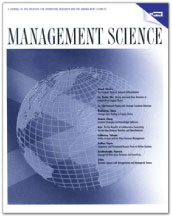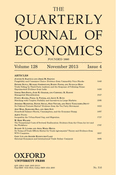Diverse Faculty / Diverse Scholarship
Thursday, December 2nd, 2021This final Director’s Blog of 2021 highlights the research of some of our Fuqua faculty to illustrate the academic strength that a diverse community can create and share to the benefit of management education and the world. Our only regret is that we can’t feature our entire faculty here due to space limitations!
Note that the links below will prompt you for your Duke Net ID and password in some cases. Fuqua faculty author names will appear in bold. Thanks for your attention this year, and best wishes for successful exams and a restful holiday season!
- The Natural Hair Bias in Job Recruitment, Social Psychological and Personality Science, 12:5, 2021
Christy Zhou Koval, Ashleigh Shelby Rosette. - Loved As-Is: How God Salience Lowers Interest in Self-Improvement Products, Journal of Consumer Research, 2021
Lauren Grewal, Eugenia C Wu, Keisha M Cutright. - Marketing Thinking and Doing, Journal of Marketing, 85:1, 2021
John A Deighton, Carl F Mela, Christine Moorman - The Impact of Medical Marijuana Legalization on Opioid Prescriptions, SSRN, 10/12/2021.
Hayoung Cheon, Tong Guo, Puneet Manchanda, S Sriram - The Rise of Scientific Research in Corporate America, NBER Working Papers, September 2021
Ashish Arora, Sharon Belenzon, Konstantin Kosenko, Jungkyu Suh (Fuqua PhD candidate) & Yishay Yafeh - A Job for Everyone, Duke Corporate Education Insights on Culture, Diversity, Inclusion, & Leadership, June 2021
Daisy Lovelace - Testing, Voluntary Social Distancing and the Spread of an Infection, NBER Working Papers, July 2020
Daron Acemoglu, Ali Makhdoumi, Azarakhsh Malekian & Asuman Ozdaglar - What Explains Differences in Finance Research Productivity during the Pandemic?, Journal of Finance, 76:4, August 2021
BM Barber, W Jiang, A Morse, Manju Puri, H Tookes, IM Werner
 Yina Lu, Andrés Musalem, Marcelo Olivares, Ariel Schilkrut, (2013)
Yina Lu, Andrés Musalem, Marcelo Olivares, Ariel Schilkrut, (2013)  Today, we’re beginning a new series of posts on our blog. Fuqua Faculty Scholarship will briefly highlight currently published research by members of the faculty here at the Fuqua School of Business.
Today, we’re beginning a new series of posts on our blog. Fuqua Faculty Scholarship will briefly highlight currently published research by members of the faculty here at the Fuqua School of Business.